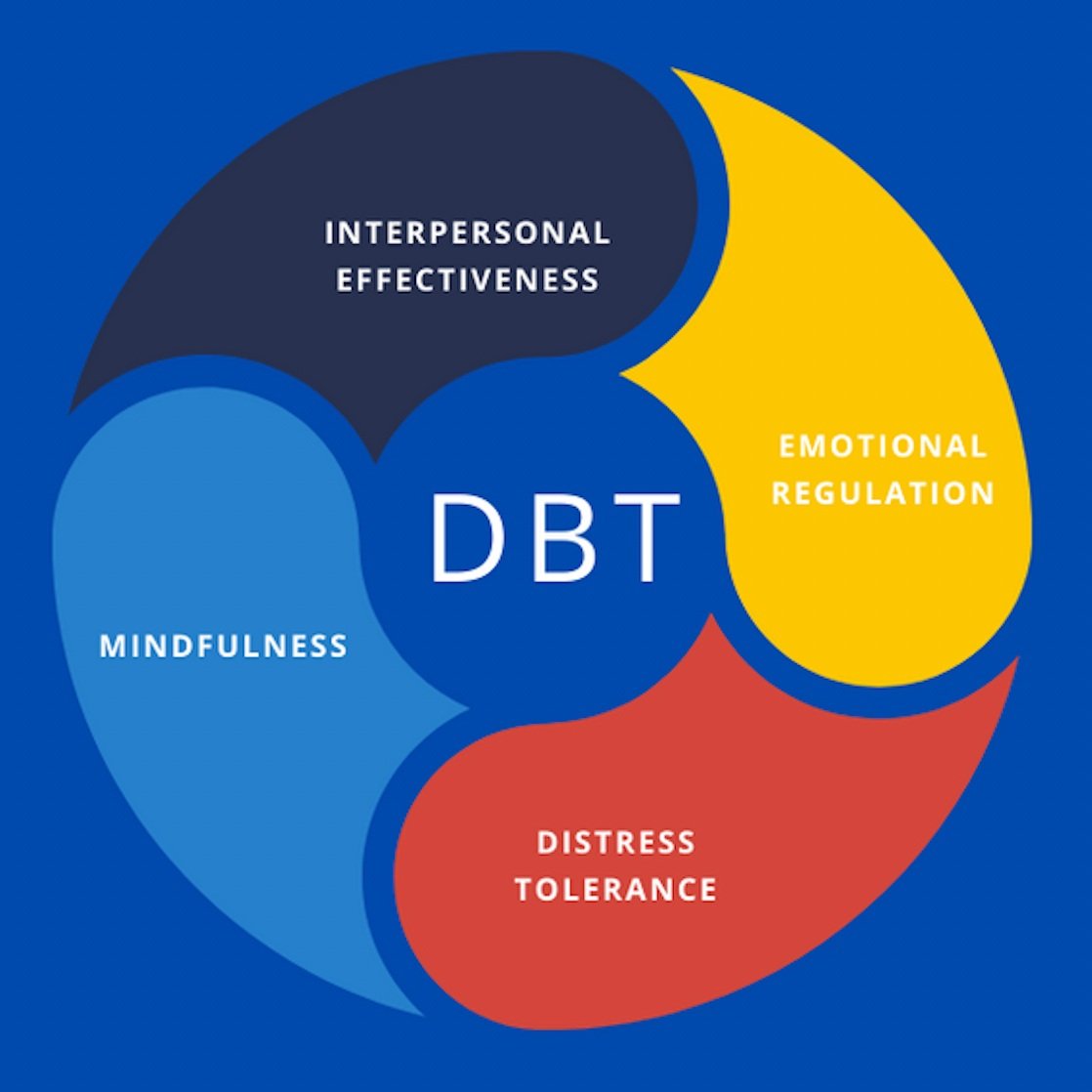Dialectical Behaviour Therapy (DBT)
What is Dialectical Behaviour Therapy (DBT)?
DBT is an evidence-based model of therapy based on Cognitive Behavioral Therapy (CBT) that helps people learn and use new skills and strategies so that they build lives they feel are worth living.
‘Dialectical’ means ‘the existence of opposites’ and within a therapeutic context, people are taught two seemingly opposite strategies: acceptance (i.e., that their experiences and behaviour are valid) and change (i.e., that they have to make positive changes to manage emotions and move forward). Focusing on the emotional and social aspects of living, personal and interpersonal skills in relationships are emphasized.
In DBT, four core skills are taught: mindfulness, distress tolerance, interpersonal effectiveness and emotion regulation.
-
Who can benefit from DBT?
Currently the only empirically supported treatment for Borderline Personality Disorder (BPD), DBT was first developed for this population to help with regulating/handling emotions, controlling impulses and managing sensitivity to small changes in their environments. Research demonstrates that DBT is effective for reducing symptoms and helping with their management
DBT can also help people with Post-traumatic Stress Disorder (PTSD), depression, eating disorders, substance use and self-harm/suicidal behaviour.
-
Is DBT used with adolescents?
Yes, adolescents benefit from DBT, too! Adapted by psychologists Alec Miller and Jill Rathus from the original DBT model, targeting five areas: confusion about self, impulsivity, emotional instability, interpersonal problems and parent-teen problems.
DBT has been shown to be effective in treating adolescents with depression who demonstrate some traits of BPD that are beyond that expected of typical adolescent development. Some traits of BPD in adolescents are: unstable sense of self, unstable personal relationships, inappropriate or uncontrollable anger, serious mood swings, recurrent self-harm or suicide attempts, chronic feelings of emptiness and impulsivity that places the adolescent at risk.
-
Is DBT offered as a comprehensive group program or individually?
At Spirit, DBT is presently delivered within an individual counselling context and is not offered as a comprehensive DBT group experience. It is hoped that this will be possible in the future as more Spirit therapists become trained and certified in DBT.

